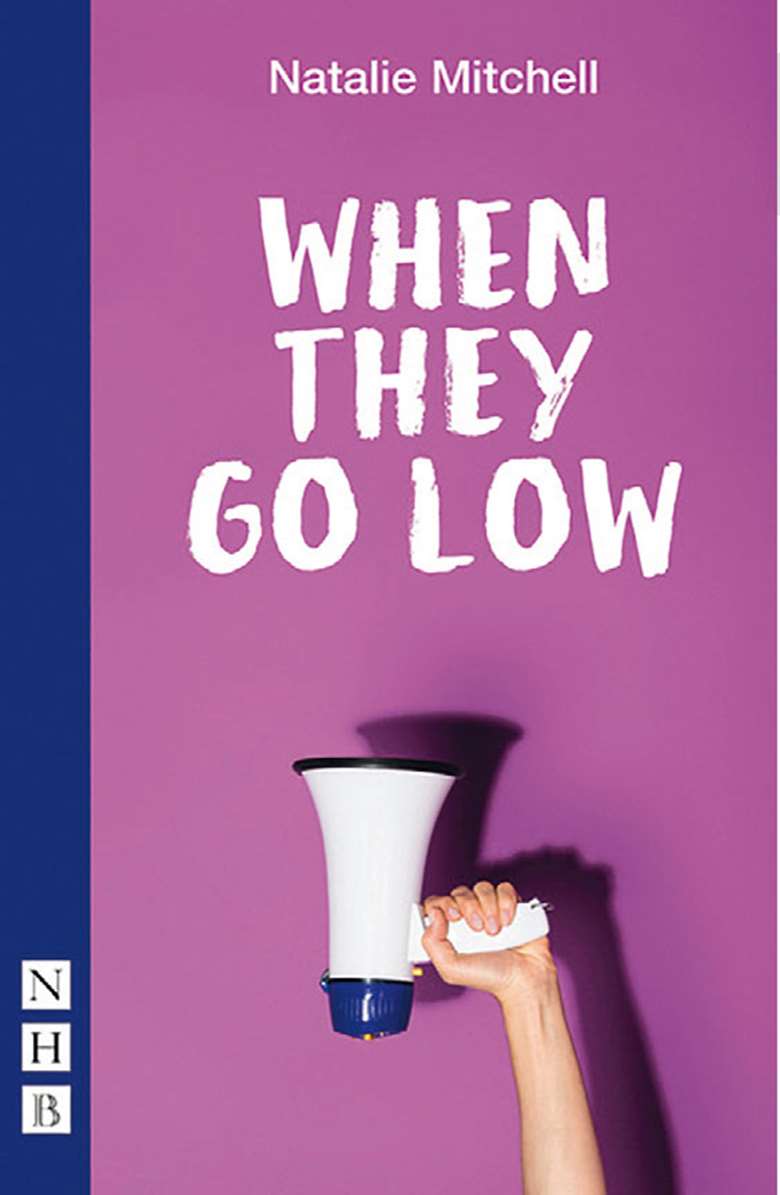When They Go Low by Natalie Mitchell
Naomi Holcombe
Sunday, March 1, 2020
Exploring teenage sexual politics, this work has a feminist voice at its core. Published by Nick Hern Books

Teenagers of today live in world where social media dominates. It is part of their everyday language; it is the predominant way in which they communicate with each other and it has become intertwined with their identities. Unfortunately, that intertwining is also damaging when social media is used to shame someone. That's what makes Natalie Mitchell's play When They Go Low really interesting for teenagers, but also really saddening to read. Social media doesn't present the truth and it can ruin people's reputations. Aimed specifically at youth theatre and teenagers, the story is based around an incident which happens at a party ‘where pictures emerge of a girl and social media goes into a frenzy.’
The play tackles more than this one incident, however. It looks at the issues facing young girls today, in a world where we would hope there is more equality, more freedom and more opportunity. It tackles slut shaming, feminism, teenage sexuality and how both girls and boys feel about the way in which they are presented on and offline and their standing in the modern world. Ultimately it looks at why they all feel under so much pressure to conform to outdated stereotypes and why boys feel as though they're having their rights stripped away when girls take charge. Objectifying and shaming girls for their actions is a big part of the debate in this play about how young men and women feel they should interact and it's a stark reminder of how much further we have to go to create real and genuine equality. If you are a feminist, it doesn't mean you hate men.
Written with a mixture of characters and chorus, it reads really fluidly and I'm sure it would translate to the stage extremely well as it resonates with so many issues that teenagers face. The only small section which I found rather odd (not in its message, but its rather incongruous presentation) was when the character Louise is talking in her bedroom to a vision of Emmeline Pankhurst, which then turns into a bizarre scene involving Madonna, Hilary Clinton, Chimamanda Ngozi and Michelle Obama. Rather like the ghost of Christmas past, present and future, it's very strange, however, its message is poignant: ‘When they go low, we go high’.

